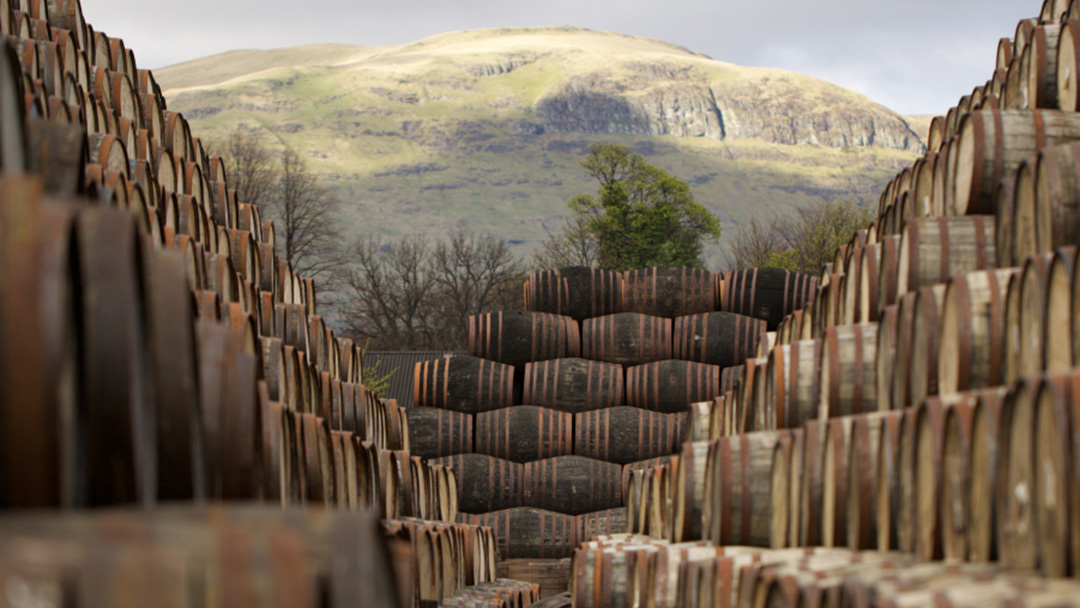Published:

Scientists from Heriot-Watt University are working with drinks company Diageo to quantify exactly how whisky gets its flavour from the cask during maturation.
The three-year Knowledge Transfer Partnership will investigate various new analytical methods to get to the bottom of what goes on in a whisky barrel.
The scientists will use scientific methods to identify the natural compounds and understand the chemistry of the process that imparts such distinctive and complex flavours to the maturing spirit.
This information will be coupled with sensory input such as visual inspection of newly-manufactured barrels and the evolving flavour and nose of the whisky. Together it will be used to develop a data science platform that will demystify the process of maturation.
Until now, no one has been able to pin down scientifically the magic that happens inside the cask.
Forward-thinking industry
Matthew Crow, research partnerships manager with Diageo's Global Technical team, said: “Scotch is matured for at least three years and often much longer, a process that enriches and refines its flavour. However, a barrel's potential for imparting flavour, and how the whisky will mature in that barrel involves many complex factors. The industry and Diageo in particular have a long history of research across whisky production, and Heriot-Watt's scientists will help us to take our understanding of the maturation process to a new scientific level.
“Scotch whisky is very much a craft industry, but it has always been forward-thinking and looking for innovative ways to support its blenders and distillers.
“This project will develop a new machine learning tool, backed by huge amounts of data, that will make sure the right barrels are used for the right amount of time to produce the right flavour characteristics in a given whisky.”
Heriot-Watt University has assembled a team of experts for the project. This includes researchers from the International Centre for Brewing and Distilling (ICBD) at Heriot-Watt, but also scientists who specialise in chemistry, physics, machine learning and data science.
Cross-disciplinary science to demystify maturation
Professor Martin McCoustra is an expert on the interaction of chemical substances with complex surfaces and will be coordinating the cross-disciplinary team from Heriot-Watt University.
Professor McCoustra said: “Scientists from across Heriot-Watt University will work on this project to help answer some of the key remaining questions about how a barrel lends flavour and aroma to whisky.
“We'll start with simple optical and ultraviolet imaging of freshly-prepared barrels and then use infrared and optical spectroscopies to give us their chemical fingerprints.
“We'll also use nuclear magnetic resonance, which is the laboratory equivalent of the MRI scan you would get in hospital, and mass spectrometry to trace how the chemical fingerprint of the spirit changes.
“These chemical fingerprints will include information on the various natural compounds that contribute to the flavour of the maturing spirit.”
“The skills of the coopers, distillers and blenders will give us a sensory evaluation of the barrel and evolving spirit.
“All this data will be used to train a machine learning system that will predict what the flavour quality of the whisky could be.
“Placing sensory data at the core of that machine learning system puts the craft of the industry at the centre of the science.
“This could significantly enhance whisky production, giving better data upon which to base fundamental decisions, such as how long a whisky should stay in a barrel.
“This will help distillers like Diageo understand the science behind the world-famous craft of Scotch whisky.”
"Producing a quality Scotch whisky is an art"
Professor Annie Hill from Heriot-Watt's ICBD said: “Producing a quality Scotch whisky is an art.
“The new KTP with Diageo is particularly exciting because it combines traditional and novel methods to generate ‘big data' that may be used to further understand whisky maturation.
“The ability to more accurately predict the outcome of maturation based on the characteristics of the cask and new make spirit will enable significant improvements in inventory management and reduction of losses, leading to overall efficiencies in Scotch whisky production.
David Richardson, Heriot-Watt's chief entrepreneurial executive, said: “Food and drink is the UK and Scotland's largest manufacturing sector.
“The Scottish whisky industry has huge economical importance - providing an export value of £6.2 billion to the UK economy with on average, the equivalent of 53 bottles of Scotch Whisky exported every second.
“Strategic academic and industry collaborations like this will play a major role in that continued growth and we're pleased to work in partnership with leading companies like Diageo to explore learning and innovations that can positively impact the global drinks sector.
“Heriot-Watt University has ambitious plans to launch further industry-led KTPs over the coming months and years to help organisations of all sizes to increase their competitiveness and productivity through the better use of knowledge, technology and skills.”
Heriot-Watt and Diageo will hire a KTP associate to work on the project, based at Diageo's technical centre in Menstrie.
The project is funded by Diageo and InnovateUK.